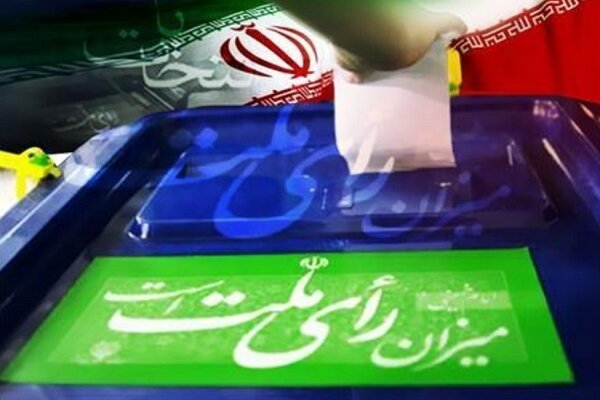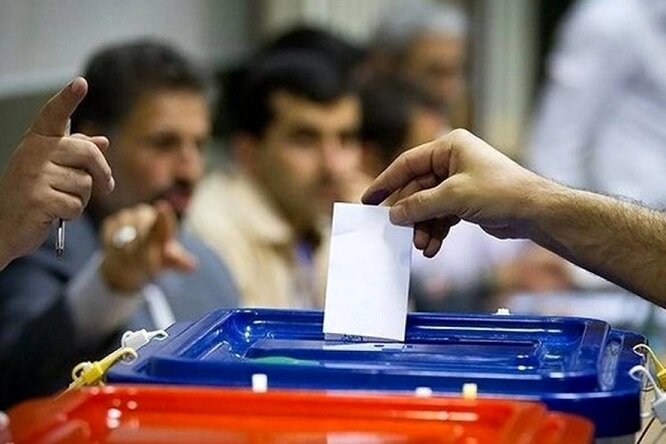In the past four decades, 11 rounds of elections have been held to appoint members of the parliament.
The 12th round is scheduled to be held on March 1 to elect 290 representatives for a four-year term.
Voters do not need to register before an election. All citizens who are eighteen years old on election day and not mentally ill can vote at any polling station in the country.
By law, election day is a holiday in Iran. Polling stations are open for at least ten hours, with the Interior Ministry able to extend these hours if needed, which is often done.
Voting in the Iranian parliament is carried out in several ways such as voting by standing up, voting by electric key, public voting by paper, and secret voting by paper.
As per Article 64 of Iran’s Constitution, there are to be two hundred seventy members of the Islamic Consultative Assembly which, keeping in view the human, political, geographic, and other similar factors may increase by not more than twenty for each ten years from the date of the national referendum of the year 1368 of the solar Islamic calendar.
“The Zoroastrians and Jews will each elect one representative; Assyrian and Chaldean Christians will jointly elect one representative; and Armenian Christians in the north and those in the south of the country will each elect one representative.”
The limits of the election constituencies and the number of representatives will be determined by law.
After the holding of elections, sessions of the parliament are considered legally valid when two-thirds of the total number of members are present.

Drafts and bills will be approved under the code of procedure approved by it, except in cases where the Constitution has specified a certain quorum.
The consent of two-thirds of all members present is necessary for the approval of the code of procedure of the Assembly.
The manner of election of the Speaker and the Presiding Board of the Assembly, the number of committees and their term of office, and matters related to conducting the discussions and maintaining the discipline of the Assembly will be determined by the code of procedure of the Assembly.
The deliberations of the Islamic Consultative Assembly must be open, and full minutes of them made available to the public by the radio and the official gazette.
A closed session may be held in emergency conditions, if it is required for national security, upon the requisition of the President, one of the ministers, or ten members of the Assembly.
Legislation passed at a closed session is valid only when approved by three-fourths of the members in the presence of the Constitutional Council.
After emergency conditions have ceased to exist, the minutes of such closed sessions, together with any legislation approved in them, must be made available to the public.
The Islamic Consultative Assembly can establish laws on all matters, within the limits of its competence as laid down in the Constitution.
Majlis cannot enact laws contrary to the rules and principles of the official religion of the country or to the Constitution. It is the duty of the Constitutional Council to determine whether a violation has occurred, by Article 96.
The interpretation of ordinary laws falls within the competence of the Islamic Consultative Assembly. The intent of this Article does not prevent the interpretations that judges may make during cassation.
Government bills are presented to the Islamic Consultative Assembly after receiving the approval of the Council of Ministers. Members’ bills may be introduced in the Islamic Consultative Assembly if sponsored by at least fifteen members.
Members’ bills and proposals and amendments to government bills proposed by members that entail the reduction of the public income or the increase of public expenditure may be introduced in the Assembly only if the means for compensating for the decrease in income or for meeting the new expenditure are also specified.
The Islamic Consultative Assembly has the right to investigate and examine all the affairs of the country.
International treaties, protocols, contracts, and agreements must be approved by the Islamic Consultative Assembly.
All changes in the boundaries of the country are forbidden, except minor amendments in keeping with the interests of the country, on condition that they are not unilateral, do not encroach on the independence and territorial integrity of the country, and receive the approval of four-fifths of the total members of the Assembly.
The proclamation of martial law is forbidden. In case of war or emergency conditions akin to war, the government has the right to impose temporarily certain necessary restrictions, with the agreement of the Islamic Consultative Assembly. In no case can such restrictions last for more than thirty days; if the need for them persists beyond this limit, the government must obtain new authorization for them from the Assembly.
The taking and giving of loans or grants-in-aid, domestic and foreign, by the government, must be approved by the Islamic Consultative Assembly.

With a view to safeguarding the Islamic ordinances and the Constitution, to examine the compatibility of the legislation passed by the Islamic Consultative Assembly with Islam, a council to be known as the Constitutional Council is to be constituted with the following composition:
Six just religious men [fuqaha’] and conscious of the present needs and the issues of the day, to be selected by the Leader, and
Six jurists, specializing in different areas of law, are to be elected by the Islamic Consultative Assembly from among the Muslim jurists nominated by the Head of the Judicial Power.
MNA




